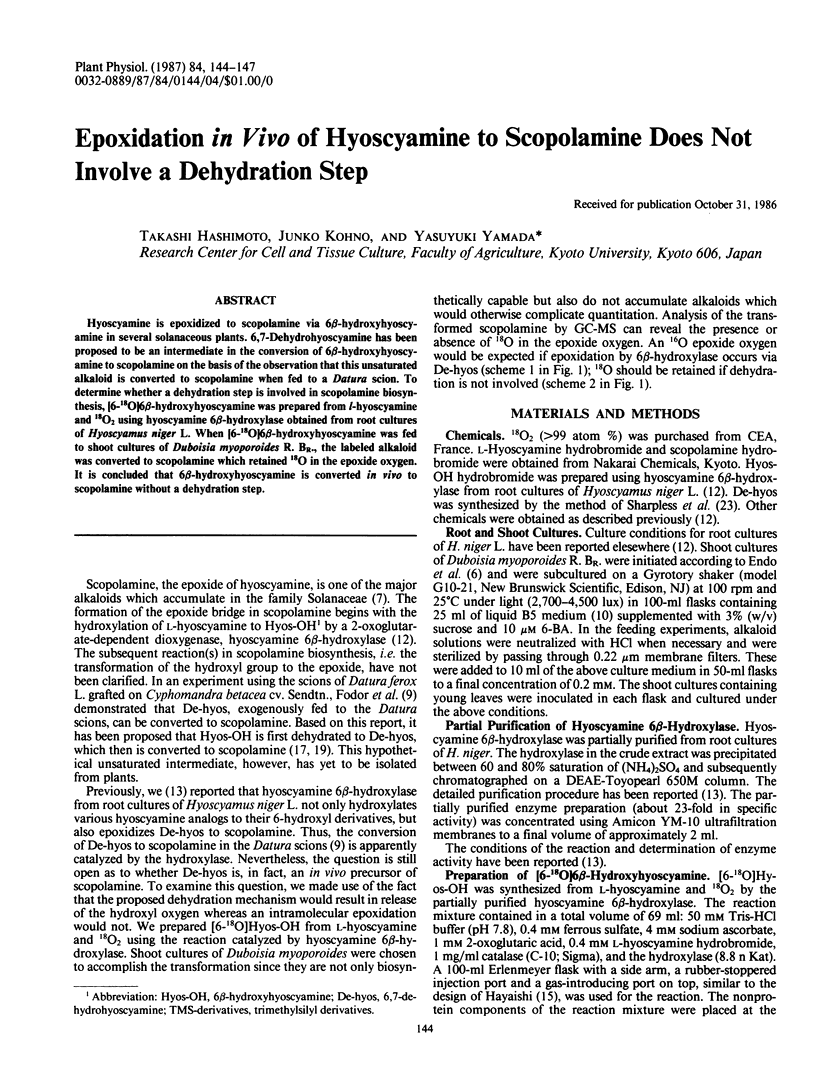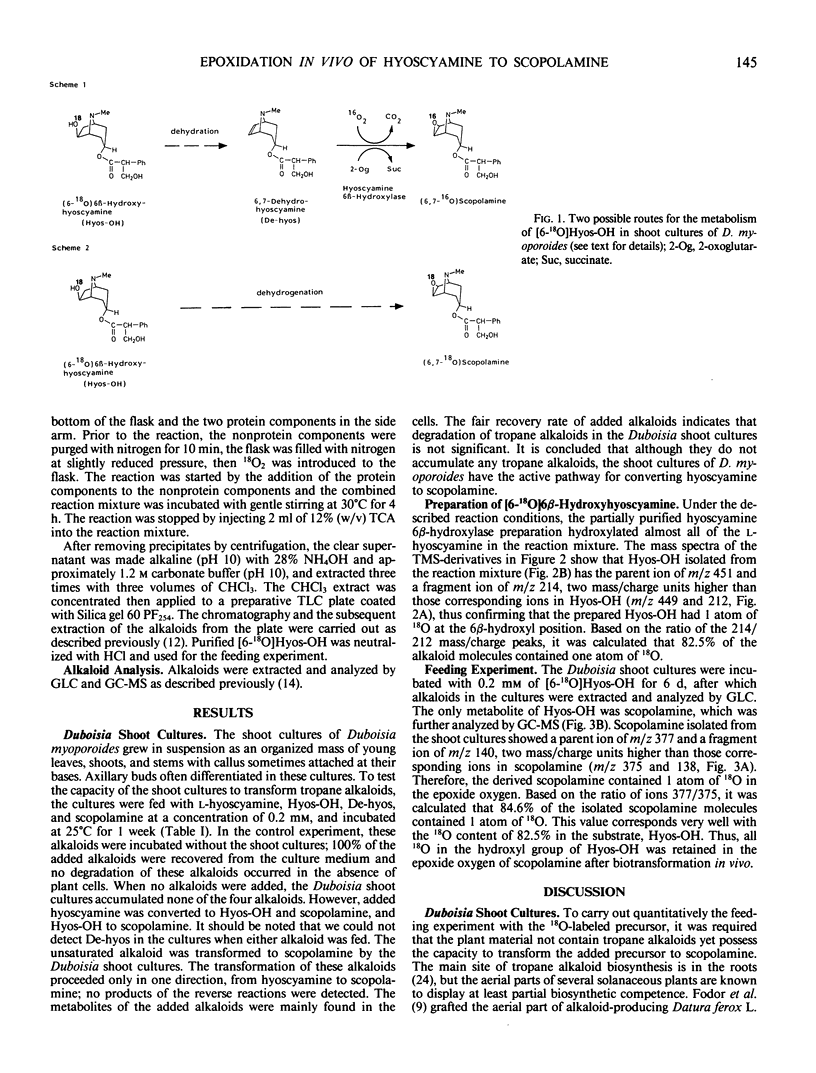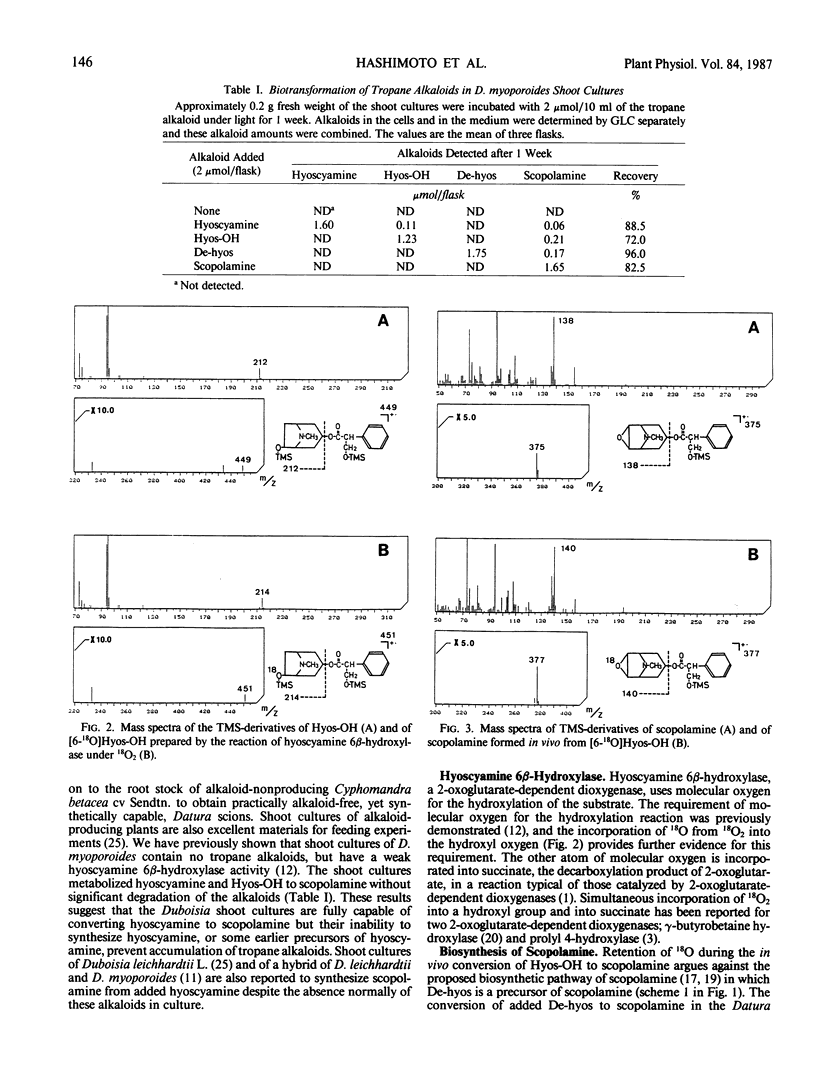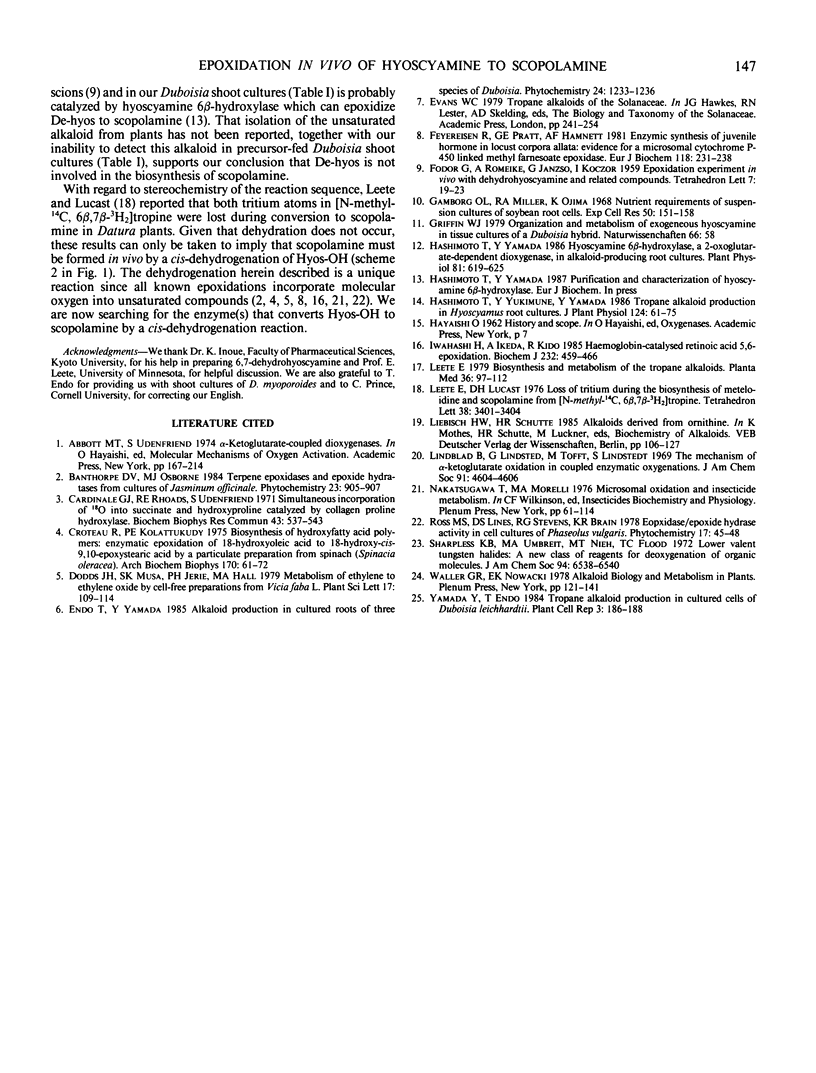Abstract
Hyoscyamine is epoxidized to scopolamine via 6β-hydroxyhyoscyamine in several solanaceous plants. 6,7-Dehydrohyoscyamine has been proposed to be an intermediate in the conversion of 6β-hydroxyhyoscyamine to scopolamine on the basis of the observation that this unsaturated alkaloid is converted to scopolamine when fed to a Datura scion. To determine whether a dehydration step is involved in scopolamine biosynthesis, [6-18O]6β-hydroxyhyoscyamine was prepared from l-hyoscyamine and 18O2 using hyoscyamine 6β-hydroxylase obtained from root cultures of Hyoscyamus niger L. When [6-18O]6β-hydroxyhyoscyamine was fed to shoot cultures of Duboisia myoporoides R. BR., the labeled alkaloid was converted to scopolamine which retained 18O in the epoxide oxygen. It is concluded that 6β-hydroxyhyoscyamine is converted in vivo to scopolamine without a dehydration step.
Full text
PDF



Selected References
These references are in PubMed. This may not be the complete list of references from this article.
- Cardinale G. J., Rhoads R. E., Udenfriend S. Simultaneous incorporation of 18 O into succinate and hydroxyproline catalyzed by collagen proline hydroxylase. Biochem Biophys Res Commun. 1971 May 7;43(3):537–543. doi: 10.1016/0006-291x(71)90647-4. [DOI] [PubMed] [Google Scholar]
- Croteau R., Kolattukudy P. E. Biosynthesis of hydroxyfatty acid polymers. Enzymatic epoxidation of 18-hydroxyoleic acid to 18-hydroxy-cis-9,10-epoxystearic acid by a particulate preparation from spinach (Spinacia oleracea). Arch Biochem Biophys. 1975 Sep;170(1):61–72. doi: 10.1016/0003-9861(75)90097-1. [DOI] [PubMed] [Google Scholar]
- Feyereisen R., Pratt G. E., Hamnett A. F. Enzymic synthesis of juvenile hormone in locust corpora allata: evidence for a microsomal cytochrome P-450 linked methyl farnesoate epoxidase. Eur J Biochem. 1981 Aug;118(2):231–238. doi: 10.1111/j.1432-1033.1981.tb06391.x. [DOI] [PubMed] [Google Scholar]
- Gamborg O. L., Miller R. A., Ojima K. Nutrient requirements of suspension cultures of soybean root cells. Exp Cell Res. 1968 Apr;50(1):151–158. doi: 10.1016/0014-4827(68)90403-5. [DOI] [PubMed] [Google Scholar]
- Hashimoto T., Yamada Y. Hyoscyamine 6beta-hydroxylase, a 2-oxoglutarate-dependent dioxygenase, in alkaloid-producing root cultures. Plant Physiol. 1986 Jun;81(2):619–625. doi: 10.1104/pp.81.2.619. [DOI] [PMC free article] [PubMed] [Google Scholar]
- Iwahashi H., Ikeda A., Kido R. Haemoglobin-catalysed retinoic acid 5,6-epoxidation. Biochem J. 1985 Dec 1;232(2):459–466. doi: 10.1042/bj2320459. [DOI] [PMC free article] [PubMed] [Google Scholar]
- Leete E. Biosynthesis and metabolism of the tropane alkaloids. Planta Med. 1979 Jun;36(2):97–112. doi: 10.1055/s-0028-1097249. [DOI] [PubMed] [Google Scholar]


